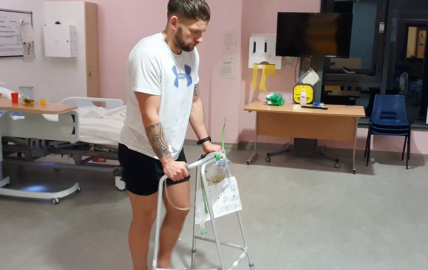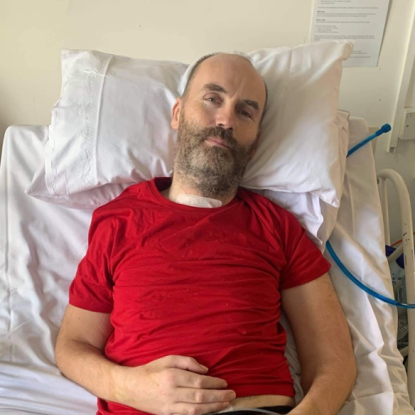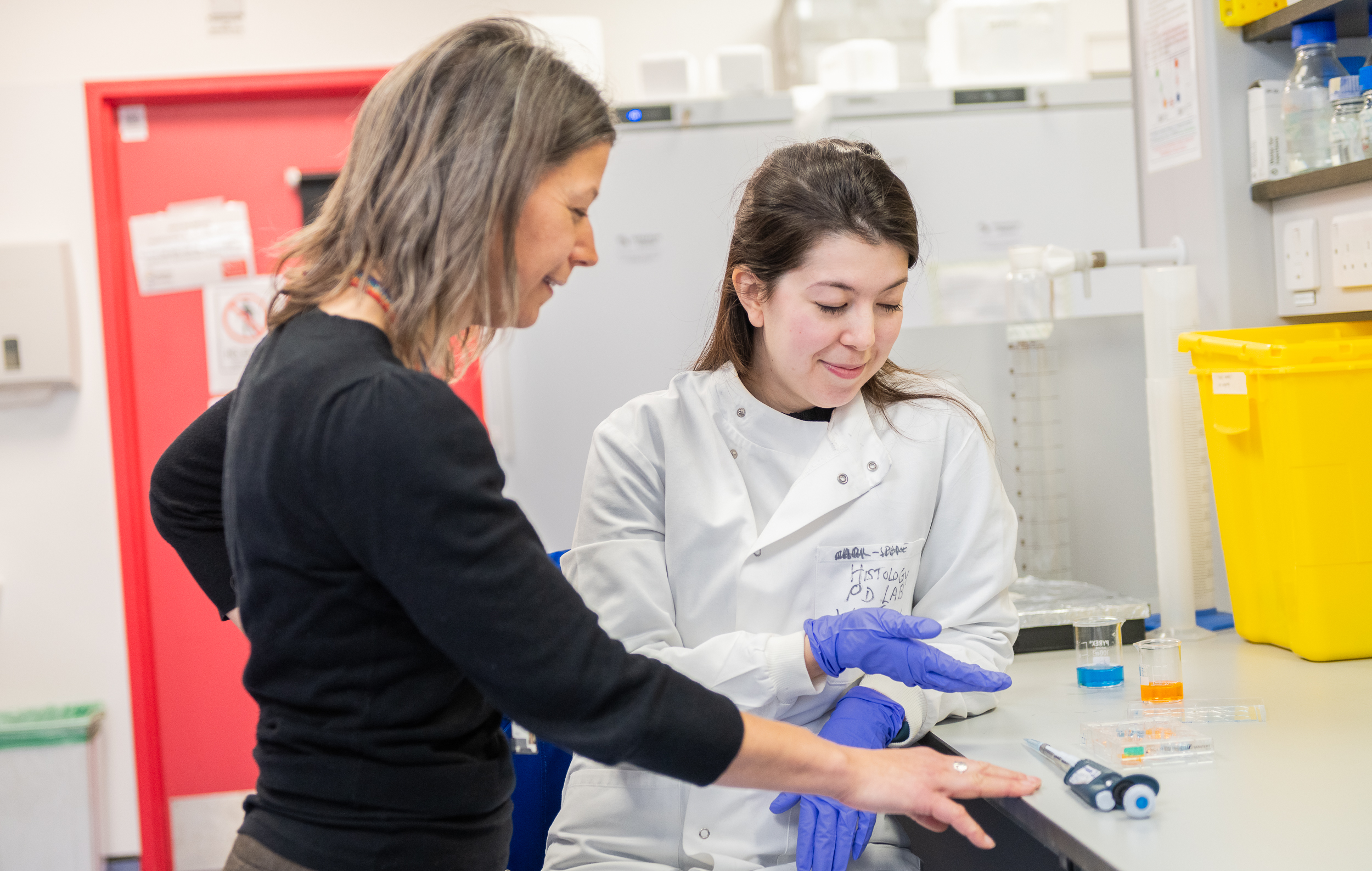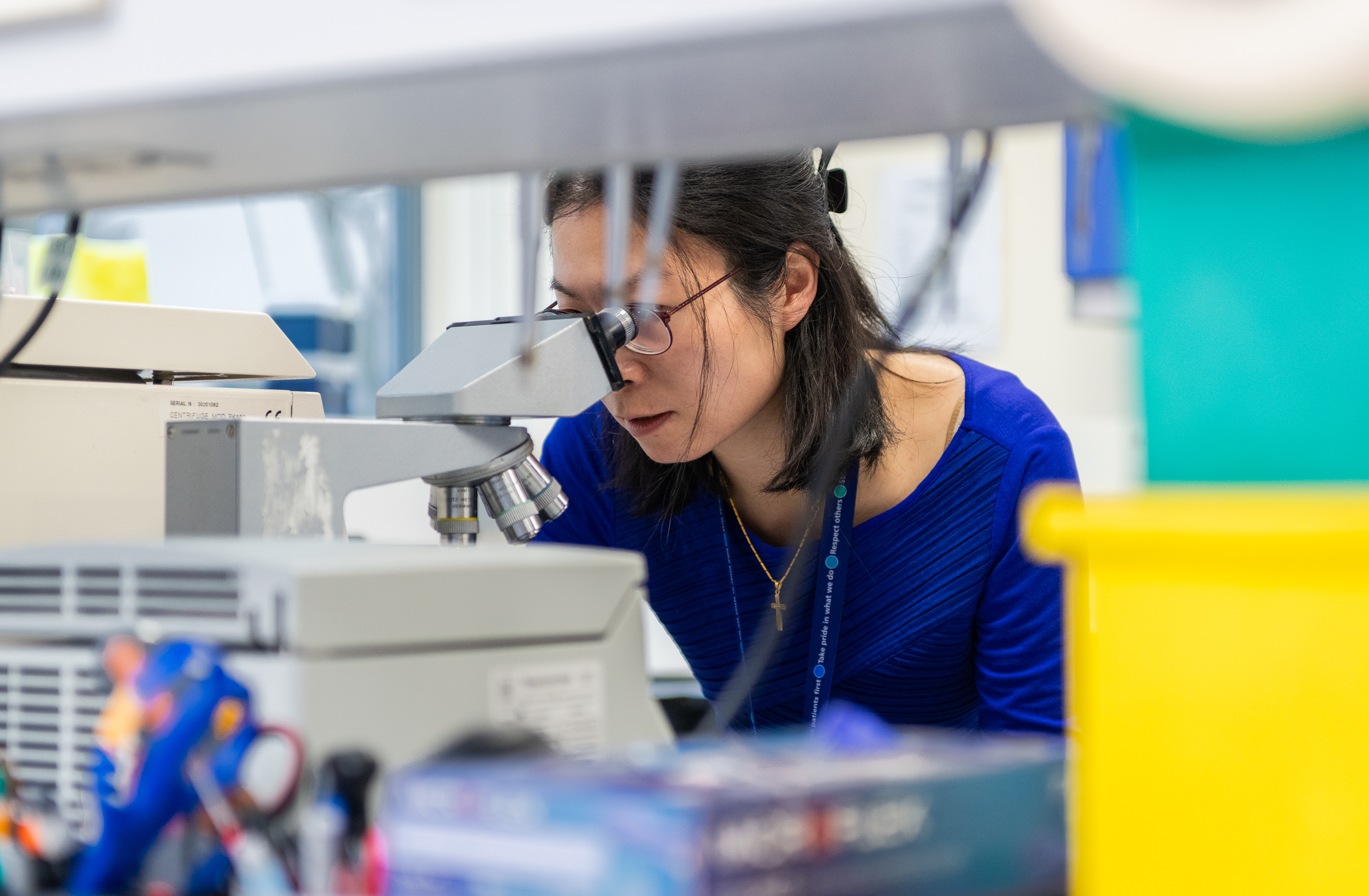29-year-old Cameron was working his dream job as a Sports Scientist at Heart Midlothian Football Club, when on the 6th of January 2022 he started to feel what he thought was a stitch in his lower abdomen. The pain increased and after around 10 minutes he could no longer stand up. Fast forward, he had lost his bladder and bowel function, a wrongful discharge from A&E and re-admission all in the space of 12 hours, he was told he had experienced an ischaemic stroke in the anterior of his spinal cord between T6-T8.
"I thought I was in the middle of a very bad dream!"
Cameron Ross
Thanks to his work, Cameron had a good understanding of his condition and was well-aware of the importance of intensive physical rehabilitation and physiotherapy. With Cameron’s long-term recovery being so uncertain, he set himself small goals to meet every day, beginning with standing and maintaining balance for 5 seconds independently. As the days progressed, the goals became more ambitious. Setting these mini goals helped Cameron to avoid feeling overwhelmed by his new situation. Over the past sixteen months, his recovery has been remarkable – after hundreds of hours of controlled and consistent rehabilitation, he was able to return to full strength in his lower limbs.
However, in the long-term, it was impossible not to consider the impact of the stroke on his career as well as his ability to live independently. Two years on from his injury, Cameron’s life has changed.

“Research offers hope doesn’t it? For many people with a spinal cord injury you are told you have six months to regain any meaningful function and beyond that the outlook is bleak. I think we need some hope that we are going to get better. I feel optimistic that as I grow older, 10-20 years from now, research can make a real difference to some of my remaining symptoms.”
A year after his injury he took the decision to change his career path. Although he tried to continue his work in professional football, the role was very physically demanding and, unfortunately, he made the very difficult decision to let that job go. Since then, Cameron has enrolled at Edinburgh Napier to complete an MSc Physiotherapy programme. Cameron’s ambition now is to qualify and practice as a physiotherapist and support others going through their own rehabilitation journey.
Our most recently funded projects include clinical studies for the restoration of hand and arm function, improvements to help with bladder and bowel control and the reduction of debilitating nerve pain. Improvements in any of these areas will have a huge impact on the everyday independence, spontaneity and quality of life for people living with paralysis.
Discover more

Community stories
Read more stories of people with a spinal cord injury and the hope they have that, one day, research will help them. Read more
Our Research
Research facilities around the world are developing a range of cutting-edge treatment pathways, some now in clinical trial. Read more